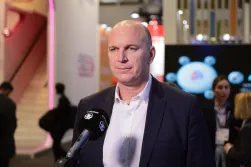The GSMA unveiled two new initiatives that should drive AI development and mobile access across Africa. First, the industry association joined forces with operators including Airtel, MTN, Orange, Vodacom, Ethio Telecom, and Axian Telecom, alongside an array of AI players, to announce a continent-wide collaboration to build inclusive African AI language models.
The partners will work to develop homegrown AI models trained on African languages and local data, creating tools that can power applications across education, health, public services, and creative industries. As part of the initiative, dedicated working groups will target gaps in data, compute, talent, and policy across the continent, with progress set to be showcased at upcoming GSMA events.
Although more than 2,000 languages are spoken across the continent, Angela Wamola, head of Africa at the GSMA, noted the continent’s linguistic diversity is a strength that has too often been overlooked in the development of global AI systems. “This initiative is about turning that challenge into an opportunity and ensuring Africa shapes the digital future on its own terms,” she stated.
The same six operators struck a separate partnership with the GSMA, proposing a set of baseline specifications for affordable entry-level 4G smartphones as part of a broader effort to make devices more accessible. In the coming months, the GSMA will consult with OEMs and technology companies to refine the proposed requirements and rally support for low-cost 4G devices. The industry association also urged African governments to remove taxes on sub-$100 smartphones, noting that VAT and import duties can inflate retail prices by more than 30% and slow digital inclusion efforts.
According to GSMA Intelligence, a $40 handset could bring mobile internet to 20 million additional users, while a $30 device could connect up to 50 million.“Access to a smartphone is not a luxury – it is a lifeline to essential services, income opportunities, and participation in the digital economy. This would send a powerful signal to manufacturers and policymakers to unite behind affordability,” said Vivek Badrinath, GSMA Director General.



















